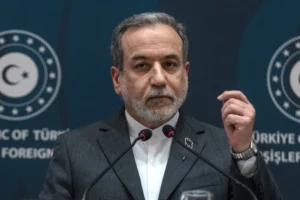KABUL (SW) – Salam Watandar conducted a survey across 28 provinces of Afghanistan to examine young people’s attitudes toward polygamy, revealing that 8 out of 10 participants reject the concept of having multiple spouses.
The highest participation was from Kapisa residents, while Nuristan had the least.
The survey findings indicate that 81.3% of the young participants do not accept polygamy. Urban youths are more opposed to polygamy compared to their rural counterparts, with 87.9% of city dwellers and 64% of villagers rejecting it.
This survey, which included 800 participants—400 men and 400 women—focused on their views regarding polygamy.
The results show that women are more opposed to polygamy than men, with 86% of women and 76.7% of men against it. They cite reasons such as the inability to administer justice and a general disinterest in polygamy as key factors.
The survey also provided diverse insights into how religious, financial, and social factors influence young people’s attitudes toward polygamy.
Participants, aged 15 to 35, primarily belonging to Generation Z (those born from the mid-1990s to the early 2010s), generally reject polygamy due to their heightened awareness of social issues, human rights, gender equality, and a preference for independence and equal relationships. They view polygamy as inconsistent with modern values and express concerns about economic challenges, showing commitment to their married life.
Iqbal, a resident of Kapisa, mentions that his commitment to his wife is the reason for his rejection of polygamy. He adds: “The reasons are the potential suffering of my children and the conflict in the family. I might not be able to offer the same affection to a second wife as I have to my first.”
Mohammad Asef, another Kapisa resident, also said: “I will not remarry; providing a comfortable life for my wife and children is enough for me.”
Among women who oppose polygamy, 35.4% believe that men cannot meet their spouses’ material and emotional needs. 27.3% have learned from the negative experiences of others, and 30% wish to be the sole partner in their husband’s life.
30-year-old Firoza, from Badghis province, who is a mother of two, says, “A woman with all her understanding of polygamy ends up ruining another woman’s life by marrying her husband; men enter multiple marriages, and both are to blame. I have witnessed many such situations, which have even led to significant conflicts.”
Unmarried young people also have varying perspectives on polygamy.
Hadiya, a resident of Faryab province, says: “No girl allows herself to marry a man who is already married; personally, I don’t feel comfortable entering into a relationship with someone who has another wife. It is important for me to maintain my values and principles.”
Eltaf from Bamyan province believes that polygamy harms marital relationships. “I don’t view polygamy positively; in the conditions we live in, the best life is one filled with love, satisfaction, and psychological peace. If there are multiple wives, there is no tranquility, and it becomes problematic,” he said.
Among those who support polygamy, men often cite financial and religious reasons, while women typically accept it for religious purposes.
Ahmad Jamshid, a 29-year-old from Faryab, expressed his intention to marry for the third time due to the permissibility of polygamy in Islam. He adds: “I try to maintain justice and obtain the consent of my first and second wives before marrying a third. I also aim to increase the influence of Muslims on earth.”
Women’s rights activists, however, argue that marrying a second wife without the first wife’s consent constitutes violence against women.
Husna Raufi, a women’s rights activist, asserts: “Marrying a second wife can lead to a husband neglecting his first wife and children. When children are not properly cared for, it creates a disparity between the children of the first and second wives, leading to inadequate upbringing. This can result in negative social phenomena.”
Ataullah Anas, a religious scholar, emphasizes that ensuring justice among wives is a fundamental principle for men. “The conditions set by Islam for the number of wives are not simple. Each woman requires an independent life, a separate home, and independent provisions for clothing and food. This is a very important matter.”
Mohammad Akef Mohajer, spokesperson for the Ministry of Promotion of Virtue and Prevention of Vice (MoPVPV), stated: “Scholars believe that polygamy is recommended and can be permissible if a man is unable to meet his needs with one wife. However, in general circumstances, polygamy is allowed but doesn’t negate the common view that having a single wife is a tradition.”
Previously, Salam Watandar conducted a series of interviews with 19 women whose husbands have multiple wives. The results showed that these women face psychological, social, and economic challenges.






